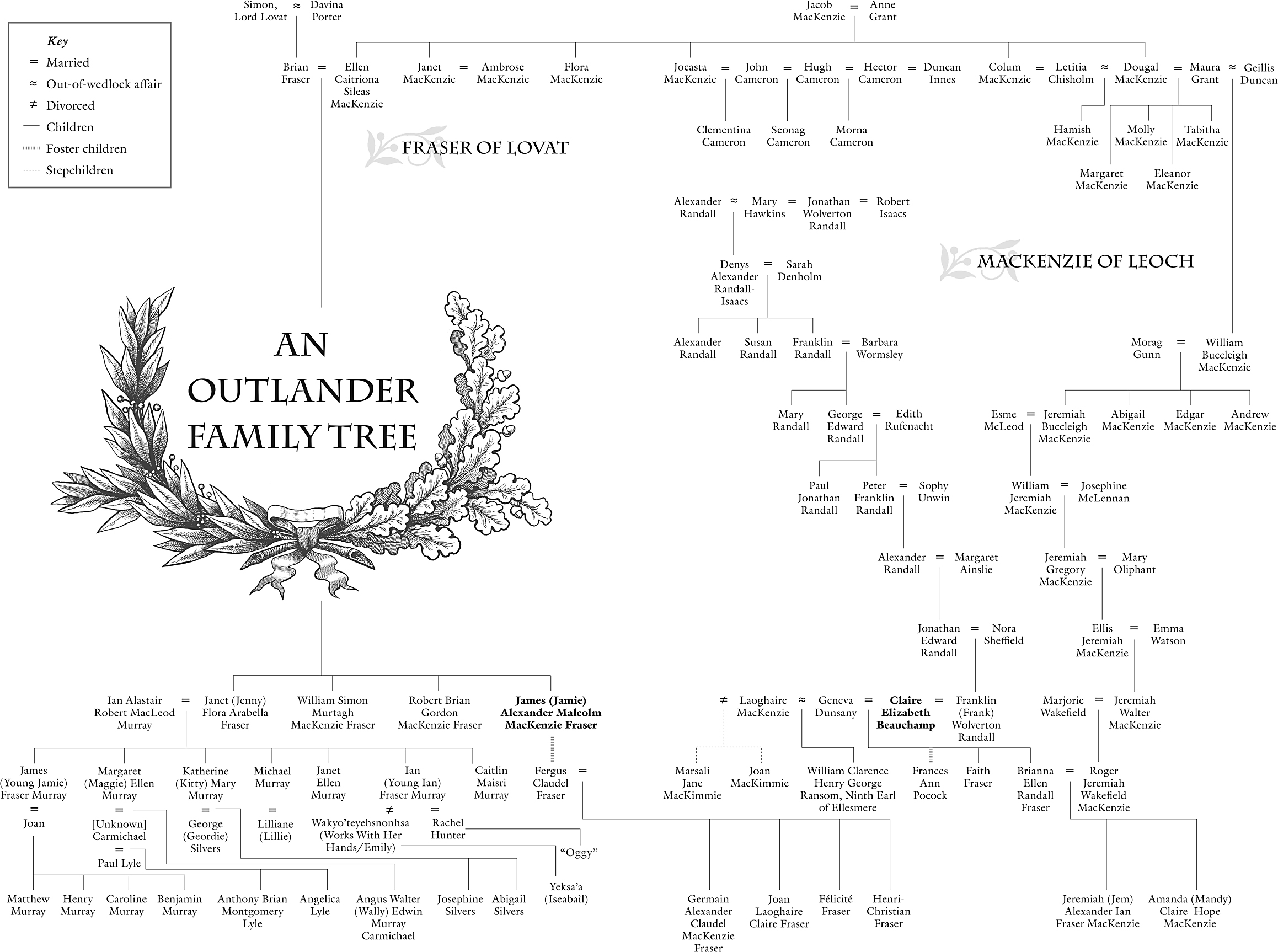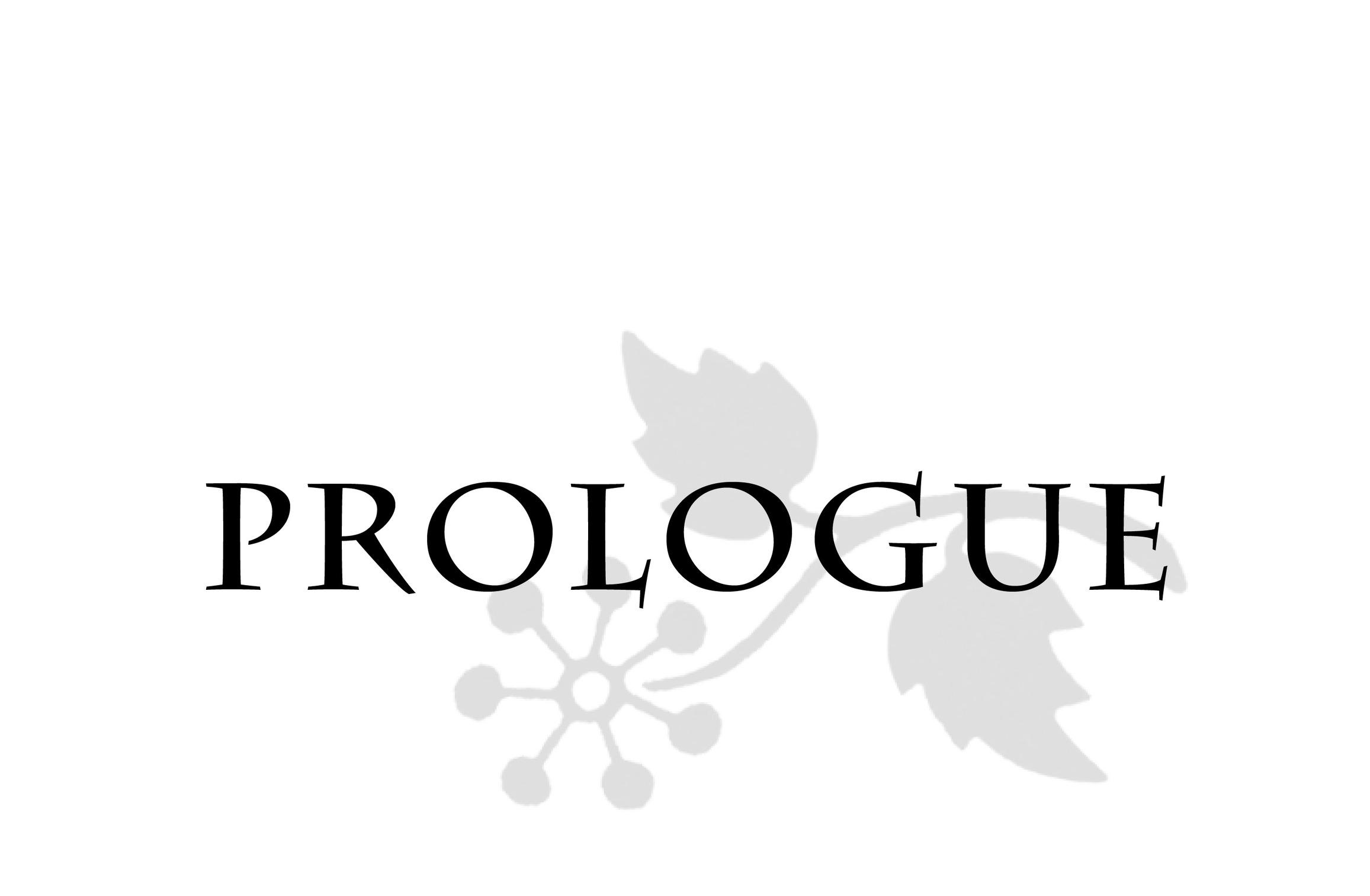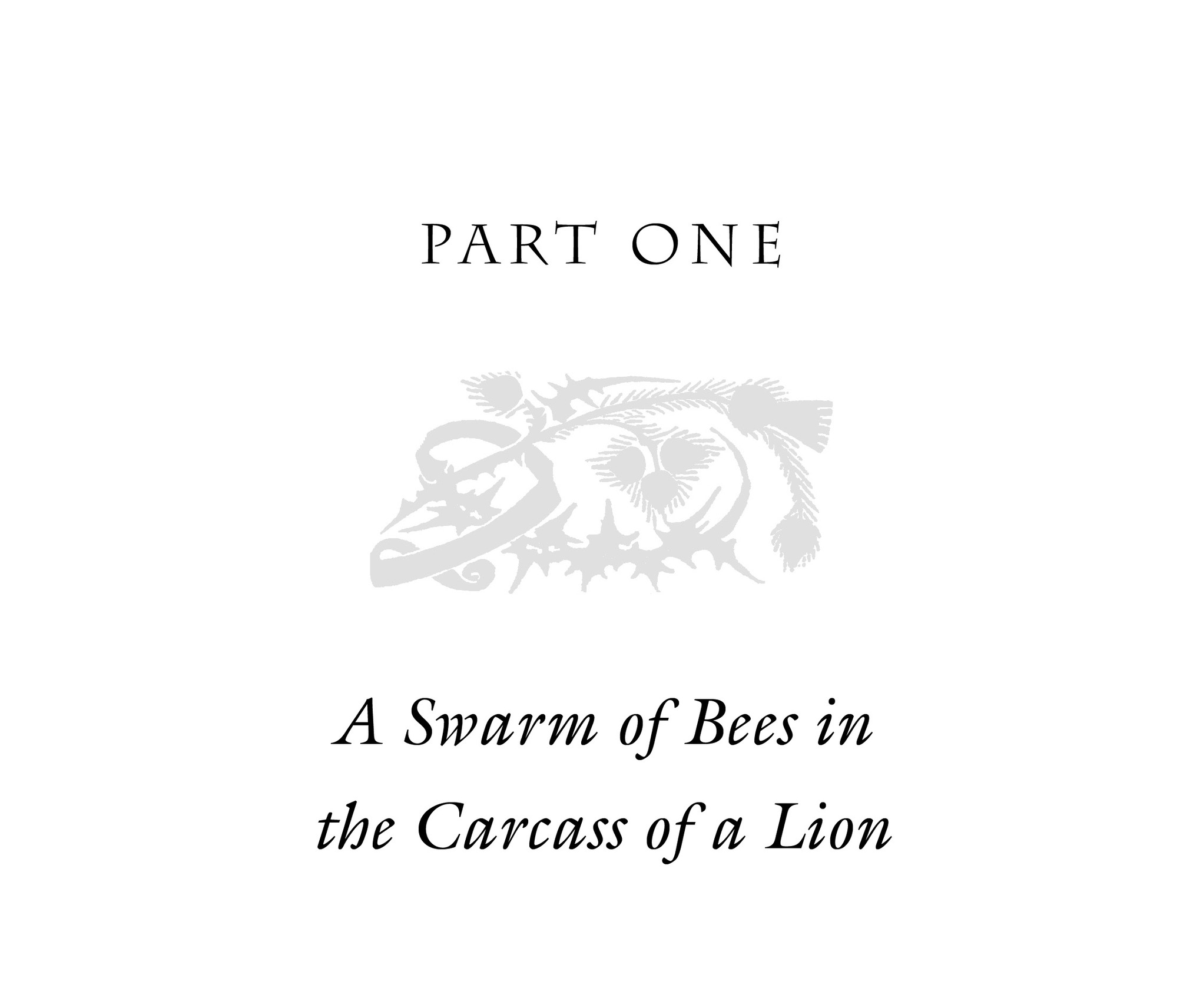Go Tell the Bees That I Am Gone (2 page)
Read Go Tell the Bees That I Am Gone Online
Authors: Diana Gabaldon



YOU KNOW THAT SOMETHING
is coming. Something—a specific, dire, and awful something—
will
happen. You envision it, you push it away. It rolls slowly, inexorably, back into your mind.
You make what preparation you can. Or you think you do, though your bones know the truth—there isn’t any way to sidestep, accommodate, lessen the impact. It
will
come, and you will be helpless before it.
You know these things.
And yet, somehow, you never think it will be today.


Fraser’s Ridge, Colony of North Carolina
June 17, 1779
THERE WAS A STONE
under my right buttock, but I didn’t want to move. The tiny heartbeat under my fingers was soft and stubborn, the fleeting jolts life. The space between them was infinity, my connection to the dark sky and the rising flame.
“Move your arse a bit, Sassenach,” said a voice in my ear. “I need to scratch my nose and ye’re sitting on my hand.” Jamie twitched his fingers under me, and I moved, turning toward him as I shifted and resettled, keeping my hold on three-year-old Mandy, bonelessly asleep in my arms.
He smiled at me over Jem’s tousled head and scratched his nose. It must have been past midnight, but the fire was still high, and the light sparked off the stubble of his beard and glowed as softly in his eyes as in his grandson’s red hair and the shadowed folds of the worn plaid he’d wrapped about them both.
On the other side of the fire, Brianna laughed, in the quiet way people laugh in the middle of the night with sleeping children near.
She laid her head on Roger’s shoulder, her eyes half closed. She looked completely exhausted, her hair unwashed and tangled, the firelight scooping deep hollows in her face…but happy.
“What is it ye find funny,
a nighean
?” Jamie asked, shifting Jem into a more comfortable position. Jem was fighting as hard as he could to stay awake, but was losing the fight. He gaped enormously and shook his head, blinking like a dazed owl.
“Wha’s funny?” he repeated, but the last word trailed off, leaving him with his mouth half open and a glassy stare.
His mother giggled, a lovely girlish sound, and I felt Jamie’s smile.
“I just asked Daddy if he remembered a Gathering we went to, years ago. The clans were all called at a big bonfire and I handed Daddy a burning branch and told him to go down to the fire and say the MacKenzies were there.”
“Oh.” Jem blinked once, then twice, looked at the fire blazing in front of us, and a slight frown formed between his soft red brows. “Where are we now?”
“Home,” Roger said firmly, and his eyes met mine, then passed to Jamie. “For good.”
Jamie let out the same breath I’d been holding since the afternoon, when those four figures had appeared suddenly in the clearing below, and we had flown down the hill to meet them. There had been one moment of joyous, wordless explosion as we all flung ourselves at one another, and then the explosion had widened as Amy Higgins came out of her cabin, summoned by the noise, to be followed by Bobby, then Aidan—who had whooped at sight of Jem and tackled him, knocking him flat—with Orrie and little Rob.
Jo Beardsley had been in the woods nearby, heard the racket, and come to see…and within what seemed like moments, the clearing was alive with people. Six households were within reach of the news before sundown; the rest would undoubtedly hear of it tomorrow.
The instant outpouring of Highland hospitality had been wonderful; women and girls had run back to their cabins and fetched whatever they had baking or boiling for supper, the men had gathered wood and—at Jamie’s behest—piled it on the crest where the outline of the New House stood, and we had welcomed home our family in style, surrounded by friends.
Hundreds of questions had been asked of the travelers: Where had they come from? How was the journey? What had they seen? No one had asked if they were happy to be back; that was taken for granted by everyone.
Neither Jamie nor I had asked any questions. Time enough for that—and now that we were alone, Roger had just answered the only one that truly mattered.
The
why
of that answer, though…I felt a stirring of the hair on my nape.
“Sufficient unto the day is the evil thereof,” I murmured into Mandy’s black curls, and kissed her tiny, sleep-deaf ear. Once more, my fingers probed inside her clothes—filthy from travel, but very well made—and found the hairline scar between her ribs, the whisper of the surgeon’s knife that had saved her life two years ago, in a place so far from me.
It thumped peacefully along, that brave little heart under my fingertips, and I blinked back tears—not for the first time today, and surely not for the last.
“I was right, aye?” Jamie said, and I realized he’d said it for the second time.
“Right about what?”
“About needing more room,” he said patiently, and turned to gesture at the invisible rectangle of the stone foundation, the only tangible trace so far of the New House. The footprint of the original Big House was still visible as a dark mark beneath the grass of the clearing below, but it had nearly faded away. Perhaps by the time the New House was finished, it would be only a memory.
Brianna yawned like a lion, then pushed back her tangled mane and blinked sleepily into the dark.
“We’ll probably be sleeping in the root cellar this winter,” she said, then laughed.
“O ye o’ little faith,” Jamie said, not at all perturbed. “The timber’s sawn, split, and milled. We’ll have walls and floors and windows aplenty before snowfall. Maybe no glass in them yet,” he added fairly. “But that can wait ’til the spring.”
“Mmm.” Brianna blinked again and shook her head, then stood up to look. “Have you got a hearthstone?”
“I have. A lovely wee piece of serpentine—the green stone, ken?”
“I remember. And do you have a piece of iron to put under it?”
Jamie looked surprised.
“Not yet, no. I’ll find that when we bless the hearth, though.”
“Well, then.” She sat up straight and fumbled among the folds of her cloak, emerging with a large canvas bag, clearly heavy and full of assorted objects. She delved about in this for a few moments, then pulled out something that gleamed black in the firelight.
“Use that, Da,” she said, handing it across to Jamie.
He looked at it for a moment, smiled, and handed it to me.
“Aye, that’ll do,” he said. “Ye brought it for the hearth?”
“It” was a smooth black metal chisel, six inches long and heavy in my hand, with the word “Craftsman” imprinted in the head.
“Well…for
a
hearth,” Bree said, smiling at him. She put a hand on Roger’s leg. “At first, I thought we might build a house ourselves, when we could. But—” She turned and looked across the darkness of the Ridge into the vault of the cold, pure sky, where the Great Bear shone overhead. “We might not manage before winter. And since I imagine we’ll be imposing ourselves on you…” She looked up from under her lashes at her father, who snorted.
“Dinna be daft, lass. If it’s our house, it’s yours, and ye ken that well enough.” He raised a brow at her. “And the more hands there are to help with the building of it, the better. D’ye want to see the shape of it?”
Not waiting for an answer, he disentangled Jem from his plaid, eased him down on the ground beside me, and stood up. He pulled one of the burning branches from the fire and jerked his head in invitation toward the invisible rectangle of the new foundation.
Bree was still drowsy, but game; she smiled at me and shook her head good-naturedly, then hunched her cloak over her shoulders and got up.
“Coming?” she said to Roger.
He smiled up at her and waved a hand, shooing her along. “I’m too knackered to see straight, love. I’ll wait ’til the morning.”
Bree touched his shoulder lightly and set off after the light of Jamie’s torch, muttering something under her breath as she stumbled over a rock in the grass, and I laid a fold of my cloak over Jem, who hadn’t stirred.
Roger and I sat quiet, listening to their voices move away into the dark—and then sat quiet for a few moments longer, listening to the fire and the night, and each other’s thoughts.
For them to have risked the dangers of the travel, let alone the dangers of this time and this place…whatever had happened in their own time…
He gazed into my eyes, saw what I was thinking, and sighed.
“Aye, it was bad. Bad enough,” he said quietly. “Even so—we might have gone back to deal with it. I wanted to. But we were afraid there wasn’t anyone there Mandy could feel strongly enough.”
“Mandy?” I looked down at the solid little body, limp in sleep. “Feel whom? And what do you mean, ‘gone back’?” Wait—” I lifted a hand in apology. “No, don’t try to tell me now; you’re worn out, and there’s time enough.” I paused to clear my throat. “And it’s enough that you’re here.”
He smiled then, a real smile, though with the weariness of miles and years and terrible things behind it.
“Aye,” he said. “It is.”
We were silent for a time, and Roger’s head nodded; I thought he was nearly asleep, and was gathering my legs under me to rise and collect everyone for bed when he lifted his head again.
“One thing…”
“Yes?”
“Have you met a man—ever—named William Buccleigh MacKenzie? Or maybe Buck MacKenzie?”
“I recall the name,” I said slowly. “But—”
Roger rubbed a hand over his face and slowly down his throat, to the white scar left by a rope.
“Well…he’s the man who got me hanged, to begin with. But he’s also my four-times great-grandfather. Neither one of us knew that at the time he got me hanged,” he said, almost apologetically.
“Jesus H….Oh, I beg your pardon. Are you still a sort of minister?”
He smiled at that, though the marks of exhaustion carved runnels in his face.
“I don’t think it wears off,” he said. “But if ye were about to say ‘Jesus H. Roosevelt Christ,’ I wouldn’t mind it. Appropriate to the situation, ye might say.”
And in a few words, he told me how Buck MacKenzie had ended in Scotland in 1980, only to travel back with Roger in an effort to find Jem.
“There’s a great deal more to it than that,” he assured me. “But the end of it—for now—is that we left him in Scotland. In 1739. With…erm…his mother.”
“With
Geillis
?” My voice rose involuntarily, and Mandy twitched and made small cranky noises. I patted her hastily and shifted her to a more comfortable position. “Did
you
meet her?”
“Yes. Ehm…interesting woman.” There was a mug on the ground beside him, still half full of beer; I could smell the yeast and bitter hops. He picked it up and seemed to be debating whether to drink it or pour it over his head, but in the event took a gulp and set it down.
“I—we—wanted him to come with us. Of course there was the risk, but we’d managed to find enough gemstones, I thought we could make it, all together. And…his wife is here.” He waved vaguely toward the distant forest. “In America, I mean. Now.”
“I…dimly recall that, from your genealogy.” Though experience had taught me the limits of belief in anything recorded on paper.
Roger nodded, drank more beer, and cleared his throat, hard. His voice was hoarse and cracking from tiredness.
“I take it you forgave him for—” I gestured briefly at my own throat. I could see the line of the rope and the shadow of the small scar I’d left on his when I did the emergency tracheotomy with a penknife and the amber mouthpiece of a pipe.
“I loved him,” he said simply. A faint smile showed through the black stubble and the veil of tiredness. “How often do you get the chance to love someone who gave ye their blood, their life, and them never knowing who ye might be, or even if ye’d exist at all?”
“Well, you do take chances when you have children,” I said, and laid a hand gently on Jem’s head. It was warm, the hair unwashed but soft under my fingers. He and Mandy smelled like puppies, a sweet, thick animal scent, rich with innocence.
“Yes,” Roger said softly. “You do.”
Rustling grass and voices behind us heralded the return of the engineers—they were deep in a discussion of indoor plumbing.
“Aye, maybe,” Jamie was saying, dubious. “But I dinna ken if we can get all the things ye’ll need for it before the cold weather comes. I’ve just started digging a new privy, though; that’ll see us through for the time being. Then in the spring…”
Brianna said something in reply that I didn’t catch, and then they were there, caught in the fire’s halo, so alike to look at with the light glimmering on their long-nosed faces and ruddy hair. Roger stirred, getting his feet under him, and I stood up carefully, Mandy limp as her rag doll, Esmeralda.
“It’s wonderful, Mama,” Bree said, and hugged me to her, her body strong and straight and softly powerful, encompassing me, Mandy between us. She held me tight for a moment, then bent her head and kissed my forehead.
“I love you,” she said, her voice soft and husky.
“I love you, too, darling,” I said around the lump in my throat, and touched her face, so tired and radiant.
She stepped back then and took Mandy from me, swinging her up against a shoulder with practiced ease.
“Come on, pal,” she said to Jem, gently nudging him with the toe of her boot. “It’s time for bed.” He made a sleepy, interrogative noise and half-lifted his head, then collapsed again, soundly asleep.
“Dinna fash, I’ll get him.” Roger waved Jamie away and, stooping, rolled Jem into his arms and stood up with a grunt. “D’ye mean to go down, too?” he asked. “I can come back and take care of the fire, as soon as I’ve put Jem down.”